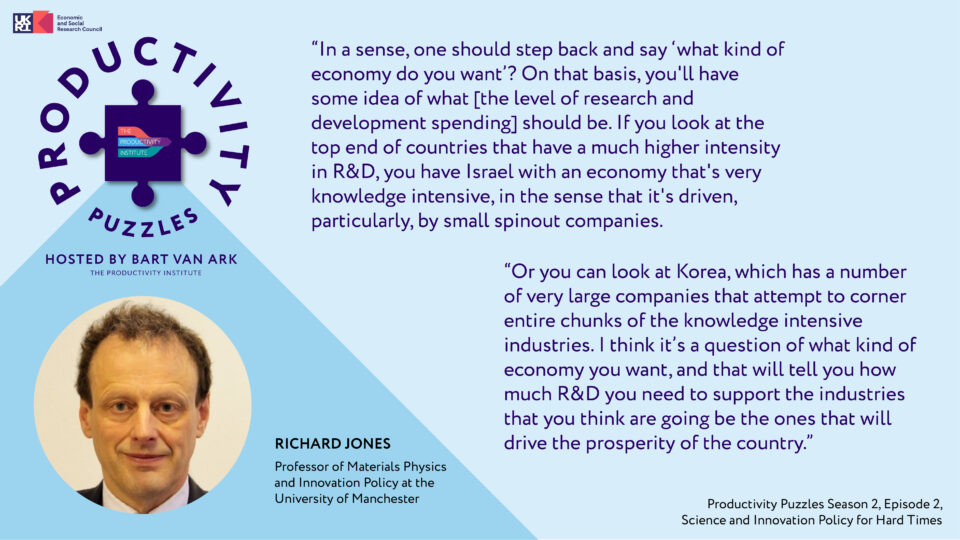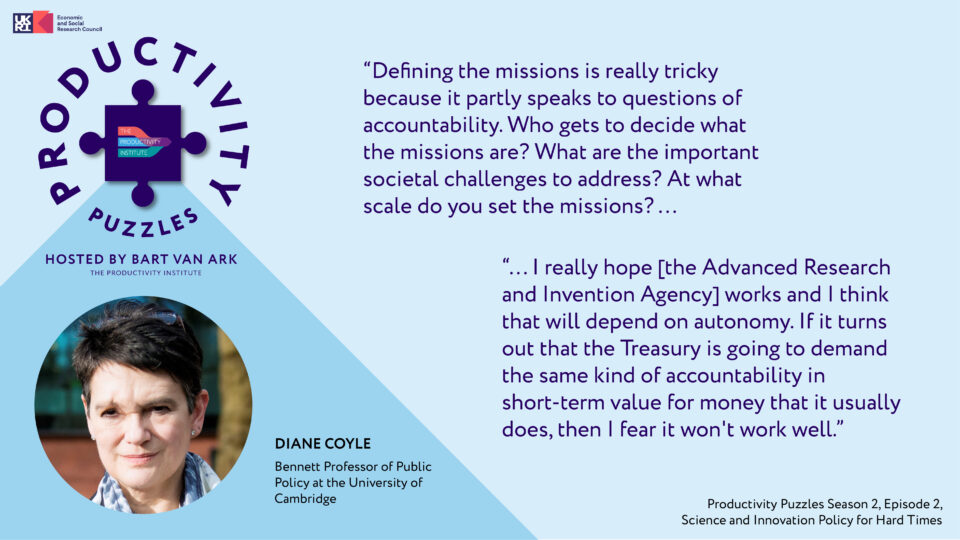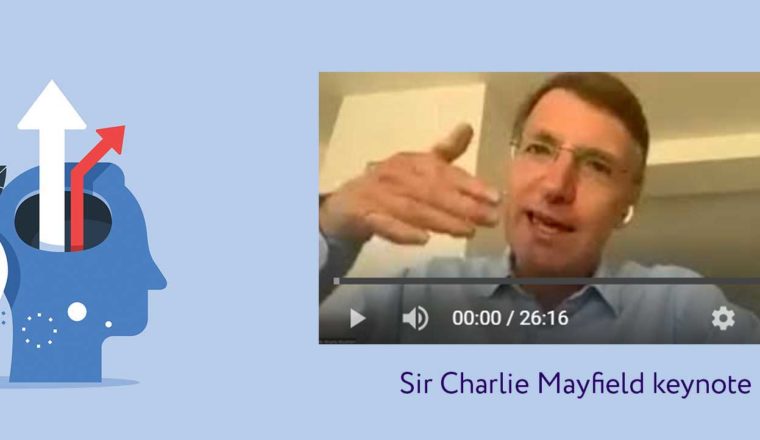Science and innovation policy for hard times: Productivity Puzzles blog
Science and innovation policy faces significant challenges in the current economic climate. Season 2, episode 2 of Productivity Puzzles examines the issues with Richard Jones, Vice-President for Regional Innovation and Civic Engagement and Professor of Materials Physics at The University of Manchester, and Diane Coyle, Bennett Professor of Public Policy at the University of Cambridge. The discussion is based around Richard Jones’ TPI insights paper, Science and innovation policy for hard times: an overview of the UK’s Research and Development landscape.
Richard Jones
The challenges currently being faced by science and innovation policy are numerous, Richard says on the podcast:
- Productivity stagnation with a large regional dispersion – outside of London, the UK’s big cities are below the UK average for productivity.
- The complexity of energy transition – decarbonisation of industry, of domestic heating and of transport will be a wrenching economic transition that will have significant ramifications.
- Security concerns – since the end of the Cold War, the UK has benefitted from a peace dividend, but some resources will now need to be reapplied to those questions of security.
- Health issues – there are significant disparities in health outcomes across the UK, along with an acute health system crisis and a slowdown in life expectancy increases.
The productivity puzzle is underlying all of these issues and it is linked to the slowdown in innovation.
Changes in UK science and innovation methods
Richard emphasises that, over the past 40 years, large chunks of science and discovery in the UK have moved out from government-controlled entities into universities, where they are cross-subsidised by income from foreign students. There was an expectation that private businesses would bridge that gap, but this has not been the case, says Richard, and the role of government in R&D has become more muddled.
What is the right level of R&D for the UK?
It is important to step back and ask what sort of economy the UK wants, according to Richard. This should inform how much R&D is needed to support the relevant industries.
Where is the disconnect?
“We do have a strong university research base … it’s good for producing research and it attracts talented people to the UK, it trains people … The universities do the stuff that they ought to do, I think the gap is in other areas and I think it is in translational and applied research.”
Richard Jones
Diane Coyle
Are ideas getting harder to come by? Research from Nick Bloom and others suggests that a lot of money is being put into research, but the number of new ideas coming out of that seems to be declining.
Yet, if you look at innovations, like AI and energy, there appears to be lots of ideas, Diane says on the podcast. Is it really the case that the ideas are getting harder to find? Or is there something strange happening in between the ideas that the scientists produce and how they are converted into benefits in society?
How should we be thinking about R&D?
Innovation is often spoken about in broad-brush terms, but this could be a mistake, Diane argues. ‘Biotech’ is a large category to talk about in terms of R&D, whereas, in reality, individual inventions are far more granular than this, Diane says. For instance, in an early paper about the diffusion of ideas, Zvi Griliches analyses the adoption of hybrid seed for corn to discuss the process of innovation and the distribution of a particular invention to different markets.
Will new science and innovation institutions succeed?
Mission-driven research can pose questions about who decides the missions and their scale, according to Diane. For instance, the success of the Advanced Research and Invention Agency may hang on the level of autonomy it is afforded, as well as the longer-term consistency of science and innovation policy.
To find out more, listen to Science and Innovation Policy for Hard Times, which is available on The Productivity Institute website, or wherever you get your podcasts.




